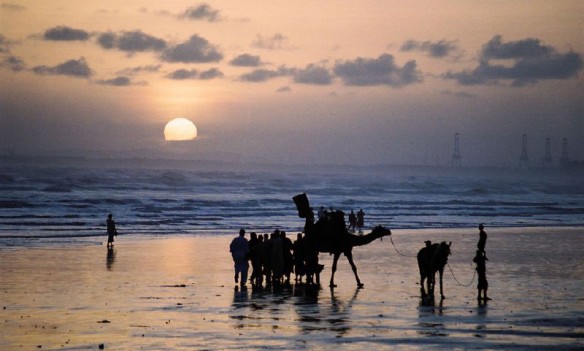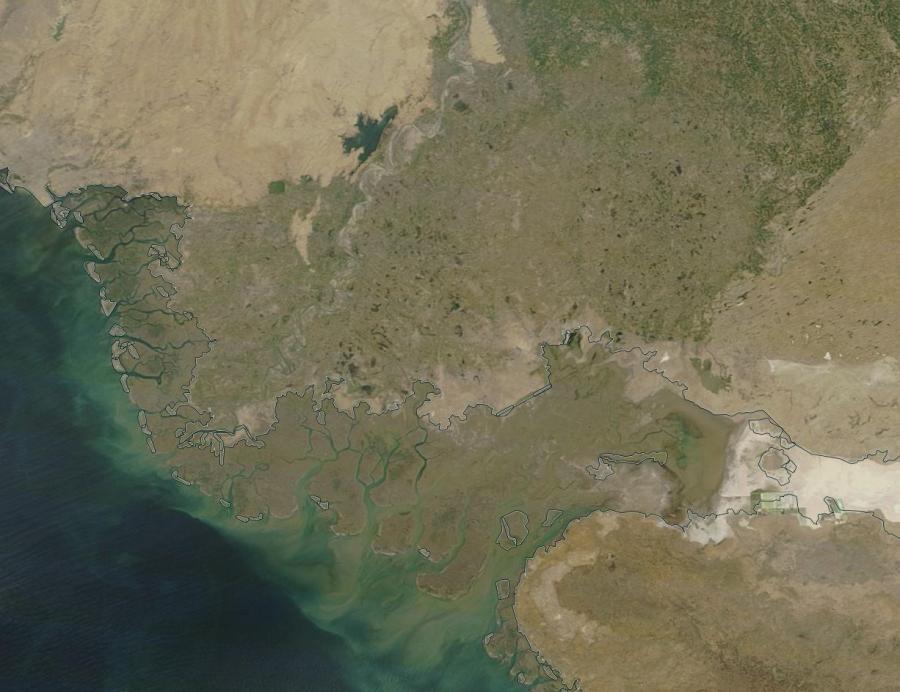Senate to Vote on Whether Climate Change is Real
I'm going off the rails on a crazy train
-Ozzy Osbourne
Something is happening
but you don't know what it is.
Do you, Mr Jones?
-Bob Dylan
You can't make this stuff up! See here. For the view of climate scientists:
"..., climate scientists have become increasingly worried about the survival of civilization. For example, Lonnie Thompson, who received the U.S. National Medal of Science in 2010, said that virtually all climatologists "are now convinced that global warming poses a clear and present danger to civilization."
Meanwhile Sea Level Rise, Persistent Drought Sets off Mass Migration and Famine in Pakistan (see below).
Of course it's not just climate change that is a problem.:
"Humans are “eating away at our own life support systems” at a rate unseen in the past 10,000 years by degrading land and freshwater systems, emitting greenhouse gases and releasing vast amounts of agricultural chemicals into the environment, new research has found."
Two major new studies by an international team of researchers have pinpointed the key factors that ensure a livable planet for humans, with stark results.Of nine worldwide processes that underpin life on Earth, four have exceeded “safe” levels – human-driven climate change, loss of biosphere integrity, land system change and the high level of phosphorus and nitrogen flowing into the oceans due to fertiliser use.
Of course the Senators don't really need scientists to tell them what is going on. Just like most American's , they alreday know everything! We are all Confident Idiots. (Longish article - kind spooky)
"In 1999, in the Journal of Personality and Social Psychology, my then graduate student Justin Kruger and I published a paper that documented how, in many areas of life, incompetent people do not recognize—scratch that, cannot recognize—just how incompetent they are, a phenomenon that has come to be known as the Dunning-Kruger effect. Logic itself almost demands this lack of self-insight: For poor performers to recognize their ineptitude would require them to possess the very expertise they lack. To know how skilled or unskilled you are at using the rules of grammar, for instance, you must have a good working knowledge of those rules, an impossibility among the incompetent. Poor performers—and we are all poor performers at some things—fail to see the flaws in their thinking or the answers they lack.
What’s curious is that, in many cases, incompetence does not leave people disoriented, perplexed, or cautious. Instead, the incompetent are often blessed with an inappropriate confidence, buoyed by something that feels to them like knowledge."
-------
Sea Level Rise, Persistent Drought Sets off Mass Migration and Famine in Pakistan
Labels: Climate Change, confident idiots, ecological collapse



0 Comments:
Post a Comment
Subscribe to Post Comments [Atom]
<< Home